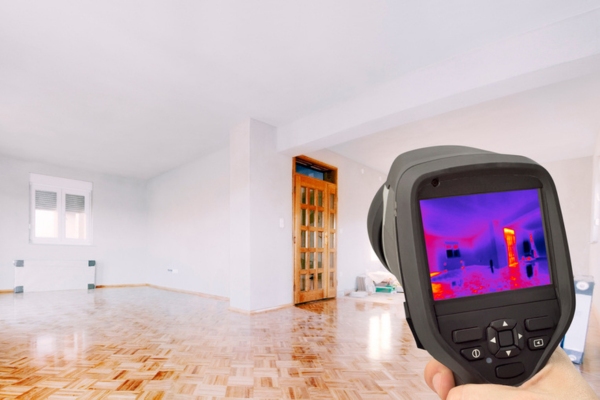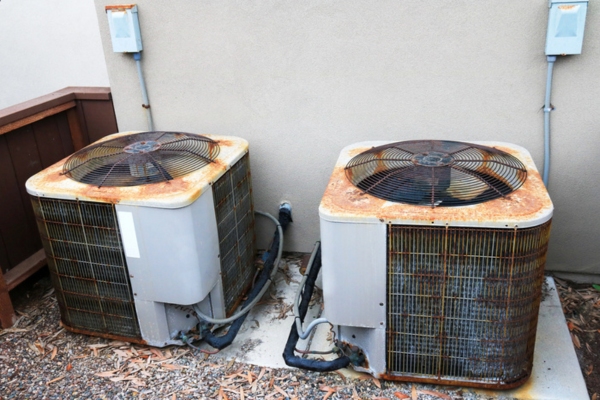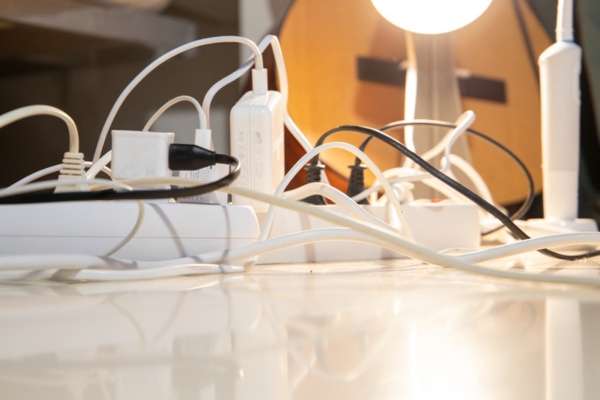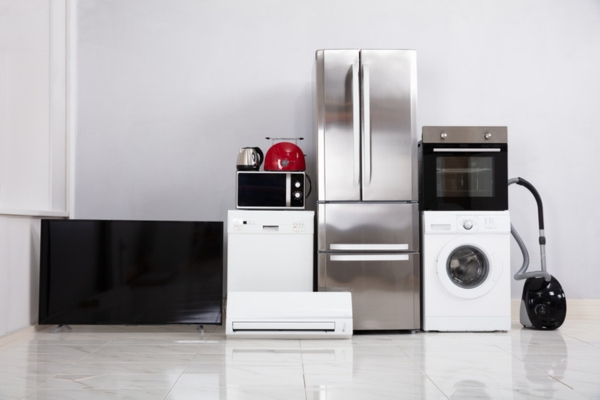Exposing Hidden Energy Hogs: Spotting And Tackling Home Energy Waste

Optimizing energy efficiency in residential spaces is essential for supporting environmental health and reducing household expenses. With climbing energy prices and the visible effects of climate change, it’s increasingly vital to cut down on energy wastage. “hidden energy hogs” within homes can often drive up utility costs and lead to excessive energy use. Homeowners can foster a more energy-efficient and economically beneficial living space by learning to identify and manage these covert sources of energy loss. Learning how to conserve energy at home is a great way to reduce unnecessary energy costs.
This article from McAllister Energy guides homeowners in pinpointing and mitigating typical energy drains, such as outdated HVAC systems, inefficient windows and doors, and other frequently ignored spots. Its goal is to craft more energy-efficient living spaces.
How To Conserve Energy At Home
Contents
Keep reading to explore some of the best strategies to reduce energy costs without sacrificing comfort.
Aging HVAC Systems

Aging heating and cooling systems are often major culprits in residential energy waste, struggling to maintain consistent indoor temperatures efficiently. Indicators of an aging HVAC system include regular malfunctions, uneven temperature distribution in the home, and persistently elevated energy bills.
Transitioning to modern, energy-efficient HVAC systems, particularly those boasting Energy Star certifications, can enhance home comfort, diminish energy expenses, lessen environmental footprint, and deliver additional advantages.
When selecting a new system, homeowners should evaluate the unit’s efficiency rating, ensure it is appropriately sized for their home, and opt for professional installation to maximize performance and energy conservation. Regular maintenance is vital to maintain the system’s efficiency and extend its service life.
Don’t Let Aging HVAC Systems Deplete Your Funds. Contact McAllister Energy for Expert Heating and Cooling Upgrades and Repairs Today!
Inefficient Windows and Doors
Windows and doors significantly contribute to home energy loss, primarily through air leaks and substandard insulation. Older windows and doors, particularly those equipped with single-pane glass or insufficient weatherstripping, majorly contribute to energy inefficiencies. These deficiencies allow conditioned air to escape and unconditioned air to infiltrate, forcing HVAC systems to exert more effort to stabilize indoor temperatures. This increased workload leads to higher energy use and elevated utility costs.
Switching to energy-efficient windows and doors featuring double or triple-pane glass, low-emissivity (low-E) coatings, and effective seals can dramatically decrease energy leakage. These improvements help maintain a consistent indoor climate, enhancing comfort. They also lower energy expenses and increase the home’s energy performance.
Inadequate Insulation
Effective insulation is vital to minimizing energy waste and ensuring indoor comfort by blocking heat loss during winter and heat gain in summer. Lacking adequate insulation in attics, walls, and floors can result in considerable energy inefficiencies. This forces heating and cooling systems to operate more intensely, elevating energy consumption and utility bills.
Enhancing or installing new insulation in these critical areas can greatly boost a home’s energy efficiency. Different insulation materials, like fiberglass, cellulose, and spray foam, provide distinct advantages. These materials can be applied using different methods, such as batts, blown-in, or spray techniques, tailored to the unique requirements and construction of the home.
Phantom Energy Usage

Phantom energy usage, also known as standby power, is the energy electronics and appliances consume even when turned off or in standby mode. This frequently overlooked source of energy waste can substantially affect energy bills, contributing to as much as 10% of a household’s energy consumption.
Computers, televisions, kitchen appliances, and chargers that remain plugged in are common culprits of phantom energy usage. Homeowners can minimize phantom energy drain by using power strips to turn off multiple devices swiftly, opting for energy-efficient appliances with low standby power consumption, and unplugging electronics when not in use.
Moreover, smart plugs and energy monitors are effective tools for managing and diminishing phantom energy usage by providing enhanced control and detailed monitoring of energy consumption.
Halt Energy Waste in Its Tracks! Book a Thorough HVAC Inspection with McAllister Energy to Identify and Tackle Efficiency Issues. Call Today to Schedule Your Appointment!
Inefficient Lighting
Transitioning to energy-efficient lighting options, such as LED bulbs, provides substantial advantages in energy conservation. These bulbs feature reduced electricity usage and longer operational lifespans compared to traditional incandescent and fluorescent bulbs. These older bulb types use more electricity and need replacing more often, increasing energy costs and maintenance frequency.
To fully enhance energy efficiency, homeowners should choose LED bulbs that match the desired brightness and color temperature for each space and consider attributes such as dimmability. Installing energy-efficient lighting is simple and can include swapping out old bulbs for LEDs or updating fixtures to support this newer technology.
Additional Energy Wasters
Several less obvious yet common sources of energy wastage in homes markedly affect efficiency and expenses.
Inefficient Appliances

Aged appliances frequently stand out as major energy consumers, using much more electricity than newer models. Appliances like refrigerators, washing machines, and dishwashers over ten years old generally do not meet the efficiency levels of recent models. Upgrading to ENERGY STAR-certified appliances can cut energy usage by up to 50%, leading to significant reductions in utility bills and a smaller environmental impact.
Poorly Maintained HVAC Systems
Consistent maintenance is crucial for maintaining HVAC systems’ efficiency and minimizing energy waste. Ignoring essential maintenance tasks such as replacing air filters, cleaning coils, and examining ductwork can cause diminished performance and heightened energy usage. Arranging yearly professional inspections and adhering to a regular maintenance schedule can help the system operate efficiently, extend its lifespan, and control energy expenditures.
Water Heaters
Enhancing the efficiency of water heaters is a valuable approach to reducing energy waste. Adding insulation to the tank and adjacent pipes can decrease heat loss, enabling the system to keep water at the set temperature using less energy. Adjusting the thermostat to 120°F helps avoid overheating and conserves energy. For optimal efficiency, homeowners might consider switching to tankless or high-efficiency water heaters.
Thermostat Settings

Optimal thermostat settings are vital to maximizing energy efficiency. Keeping thermostats at energy-conserving temperatures—68°F during winter and 78°F throughout summer—can significantly lower energy use. Employing programmable or smart thermostats enables homeowners to automatically alter temperatures according to their daily routines, promoting efficient energy use while maintaining comfort. These devices can adapt to household habits and fine-tune settings to enhance energy savings even more.
In Need of Urgent HVAC Repairs? McAllister Energy Offers Fast Services to Ensure Your Home Remains Comfortable All Year. Contact Us Anytime!
Home Energy Conservation
Energy conservation is essential for lowering utility bills and reducing environmental impact. Homeowners can adopt effective strategies to enhance comfort, save money, and promote sustainability.
- Appliances and Electronics: Disconnecting electronics when not in use and utilizing power strips can drastically decrease energy waste. Investing in ENERGY STAR-certified appliances is also highly beneficial, as these devices use up to 50% less energy than standard models.
- Heating and Cooling: Efficient heating and cooling are critical for energy conservation. Setting thermostats to 68°F in winter and 78°F in summer helps reduce energy usage. Programmable thermostats can further refine energy use by adjusting temperatures according to daily schedules. Routine HVAC maintenance with McAllister Energy ensures optimal system performance and minimal energy wastage.
- Water Usage: Reducing water consumption also saves the energy needed to heat it. Installing low-flow fixtures, repairing leaks, and adopting water-saving habits like showering in shorter periods and only running full loads in dishwashers and washing machines can significantly influence energy conservation.
- Lighting: Adopting LED bulbs, which consume less energy and last longer, is a smart way to conserve energy. Enhancing natural light and ensuring lights are off when rooms are unoccupied further reduce energy use.
Additional energy savings can be achieved by learning how to conserve energy at home through the installation of energy-efficient windows and doors, home insulation, and air sealing. Utility companies and government agencies often offer incentives and rebates for making energy-efficient upgrades. Utilizing these programs can reduce the initial costs of upgrades and yield substantial long-term savings.
Conclusion
Addressing familiar sources of energy waste in the home—including outdated HVAC systems, inefficient windows and doors, inadequate insulation, phantom energy usage, and inefficient lighting—can greatly reduce the environmental impact and energy costs.
It is vital to educate oneself on how to conserve energy at home through consistent maintenance, upgrading to energy-efficient appliances and fixtures, and adopting energy-saving practices. Homeowners are urged to take proactive steps to boost their home’s energy efficiency, benefiting their finances and the environment.
Call McAllister Energy For All Your HVAC Needs
For premier heating and cooling solutions in Camden County, New Jersey, trust McAllister Energy. Our team is made up of professionally certified technicians who excel in providing various HVAC services, from routine maintenance and repairs to installations and comprehensive system upgrades. We are dedicated to ensuring your HVAC system receives the highest care and service.
McAllister Energy takes pride in delivering heating and cooling services that are both of exceptional quality and affordable. Our maintenance services help enhance your comfort and your system’s energy efficiency and reduce your heating and cooling costs. Whether you need repairs or a system replacement, we offer cost-effective solutions tailored to your specific requirements, all with a guarantee of satisfaction. Contact McAllister Energy today for a complimentary, in-home estimate or to schedule a service visit.
You can click here to contact us now or call us at (856) 665-4545 to find out more! Click the link to view our service area.

Related Articles: